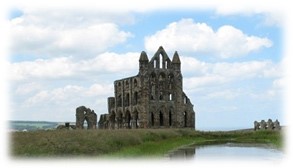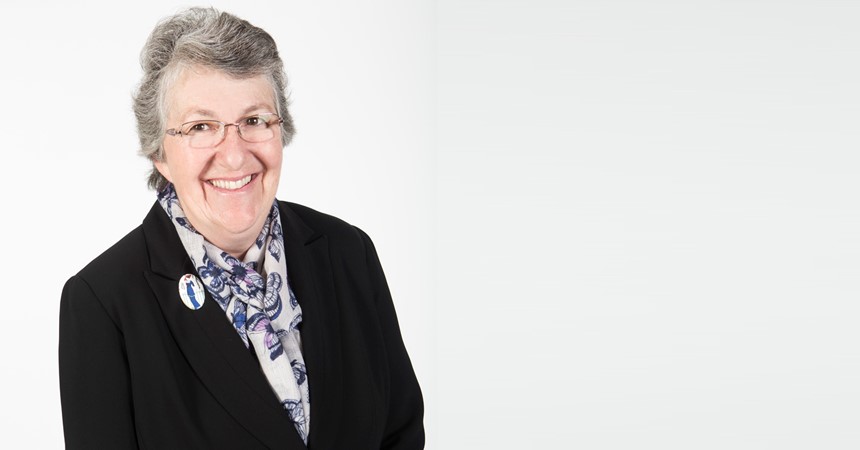As followers of The Way, we are to be courageous like Jesus and Jeremiah. This courage comes from knowing that we are loved by God and anointed as priest, prophet and king. The Entrance Antiphon for the weekend captures this nicely:
The Lord is the strength of his people,
a saving refuge for the one he has anointed.
Save your people, Lord, and bless your heritage,
and govern them for ever.
Our Easter Season followed by Pentecost, the Ascension, Trinity Sunday and Corpus Christi have served as a reminder of what it means to be chosen, to be called, to be sent, to respond and to give witness. Those who connect with our daily scriptural readings would have been immersed in the story of the early apostles, and of Paul who  travelled widely to spread the Good News. It is good to remind ourselves of the zeal of Jesus’ early disciples in the face of great opposition.
travelled widely to spread the Good News. It is good to remind ourselves of the zeal of Jesus’ early disciples in the face of great opposition.
During the past week, Fr James McEvoy has travelled the width and length of our diocese presenting a series of conversational opportunities considering the question ‘living good news in our time’. I attended his Cathedral Lecture presentation which I found to be a rich blessing. You may recall that as part of my message on 6 June, I recalled a presentation given by Bishop Mark Edwards. I wrote:
Bishop Mark Edwards, an Auxiliary Bishop from Melbourne, recently spoke at the Catholic Schools Principals Conference. He spoke about our living at a time of a change of an era, not an era of change. We are living in the space between two eras - in rites of passage, this is referred to as the liminal space, a space of not being one or the other, a space of unknowing but a space of exploring and becoming. Those who are engaged to be married are in such a liminal space, the space in-between being single and being a couple. He indicated that Christianity has experienced two other eras:
- 311CE (AD) marked the end of an era when Christians were a persecuted people, to an era when Christianity was enforced as a State religion.

- The Protestant Reformation from 1517 marked the change of an era of a single Christendom to an era of multiple Christendoms.
And now, this current phase marks the change from the era of Christendoms to the secular age (the fourth era).
We have no experience of what it means to live in this liminal space and we do not know how long it will last. We do know that God is with us, as we explore this new world. We are the midwives of this new world, the ones who are assisting in the giving of birth to this new life. Therefore we are not to despair, we are not to stay behind locked doors because we are called to be pilgrims, to journey with each other and to create the new world order.
As well as being midwives, we are also called to attend to the healing which is part of palliative care. The change of an era requires that we assist people with the pain of letting go. It seems to me that both giving birth and dying are painful and require purposeful accompaniment.
James McEvoy’s Cathedral Lecture was titled Christian Faith in a Secular Age. It can be found on St Benedict's Parish website.
However I would like to explore some of what he had to say, as part of this and next week’s messages. This week, I will try to unpack the notion of faith in this secular age and next week how ‘dialogue’ is the suggested response.
I am sure that most of us think that faith is dying in this secular age. McEvoy contends that over the past decade “leading scholars have focused on the post-1960s cultural shift, and have recognised that faith has a new and important place in contemporary culture.” According to Charles Taylor, a Canadian philosopher, the ‘conditions of belief’ have changed – that is, the lived experience of faith has changed. We have the prophetic task of giving witness to faith in this secular age. Charles Taylor calls this age the ‘culture of authenticity’.
James McEvoy invited his listeners to consider the insights of Vatican II and the relationship that has existed for more than 2000 years between the gospel and culture. He states that the Pastoral Constitution on the Church in the Modern World [Gaudium et Spes (GS)] acknowledged the significance of culture for human existence, as well as the plurality of cultures. In discussion, the relationship between the gospel and culture, the Council says:
The church, which has been sent to all peoples of whatever age or reason, is not connected exclusively or inseparably to any race or nation, to any particular pattern of human behaviour, or to any ancient or recent customs. Loyal to its own tradition and at the same time conscious of its universal mission, it is able to enter into a communion with different forms of culture which enriches both the church and the various cultures…. As if from the inside, it enriches with heavenly resources, strengthens, completes and restores in Christ the spiritual endowments and talents of every people and age. (GS 58)
 During the week, I have had the honour of breaking fast with the people of the Islamic Centre of Newcastle and the Mayfield Mosque, at an Iftar dinner. It is a great gift to be with people of faith, sharing each other’s sacred texts, life experiences and hospitality. I am sure that as we gather, we participate in fulfilling God’s mission. What was imagined at the time of the Second Vatican Council is being fulfilled.
During the week, I have had the honour of breaking fast with the people of the Islamic Centre of Newcastle and the Mayfield Mosque, at an Iftar dinner. It is a great gift to be with people of faith, sharing each other’s sacred texts, life experiences and hospitality. I am sure that as we gather, we participate in fulfilling God’s mission. What was imagined at the time of the Second Vatican Council is being fulfilled.
NAIDOC week begins next week and all are invited to attend a NAIDOC Week Service at the Cathedral. The spirituality of the First Australians has deep connections with the land and its people. I hope you are able to join us for a time of reflection on “Our Languages Matter” followed by soup and damper. Once again, the mutuality of dialogue creates for us a deeper awareness and understanding of God’s desire for us as humans and for creation.
McEvoy notes that Gaudium et Spes’ ‘indispensable role of culture in human existence, and its consequent discussion of the relationship between faith and culture, opened the way for the Catholic community to acknowledge that it is faced with a great challenge. This we know, because we have lived with the widening gap between our Catholic faith, its cultural expression and the culture in which we find ourselves.
This cultural shift is not only impacting on faith but on other major elements of our society; politics, democracy, economics, sociology, the press….. The shift is a move from hierarchical organisations and schools of thought to the more collaborative efforts of the people. Information and thought processes are no longer held in the minds and voices of a small number. Indeed Christendom thrived because of the church’s strong relationship with the state, which we recognise is not now the case. I think many are still grieving the loss of a bygone era.
McEvoy quotes Charles Taylor’s thoughts from his book, A Secular Age, on the culture of authenticity:
That each one of us has his/her own way of realising our humanity, and that it is important to find and live out one’s own, as against surrendering to conformity with a model imposed on us from outside, by society, or the previous generation, or religious or political authority.
 In other reading I have been undertaking, the concern being raised seems to be around the strong influence of culture which turns people into followers, lacking the capacity to ask critical questions and to seek answers beyond the common consumer practice of the marketplace. I recall Bishop Bill speaking with some young people a few years ago and challenging them to ‘rebel’ and ask the questions, because that is what society and institutions need.
In other reading I have been undertaking, the concern being raised seems to be around the strong influence of culture which turns people into followers, lacking the capacity to ask critical questions and to seek answers beyond the common consumer practice of the marketplace. I recall Bishop Bill speaking with some young people a few years ago and challenging them to ‘rebel’ and ask the questions, because that is what society and institutions need.
In this time of cultural shift, the focus is on individuals authentically living their spiritual journey, which means that we need to work towards a new approach for proclaiming the gospel, or as McEvoy puts it, ‘a new understanding of the relationship between faith and secular culture’. This is what I will explore with you next week.
Today is the feast day of our diocesan patron – Our Lady of Perpetual Help. Fr Paul Berezniuk, the Ukrainian priest who spoke with us a few weeks ago, reminded us that we do not pray to icons, but we pray before them, and before Mary, the theotokos, the bearer of God, in order to seek her protection, like any other mother. Please take time to gaze upon this icon of Mary, as a point of uncovering some of the mystery of our great faith.
And so I finish this message with a prayer for us and for our diocese:
Lord our God,
in the Blessed Virgin Mary, Mother of Perpetual Help,
Patron of the Church of Maitland-Newcastle;
You have shown us a disciple who is faithful to your Word.
Open our hearts to receive your saving word,
so that, by the power of your Holy Spirit,
it may direct our daily living to bring forth a rich harvest of holiness.
We pray through our Lord Jesus Christ, your Son,
Who lives and reigns with you, in the unity of the Holy Spirit, One God, forever and ever.
Amen.

